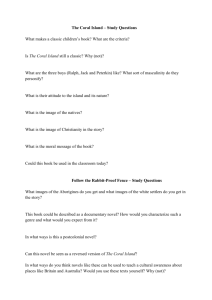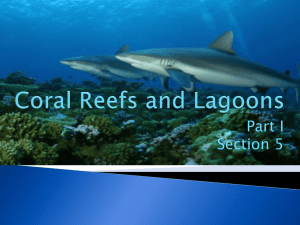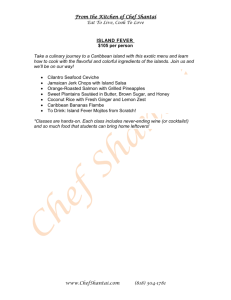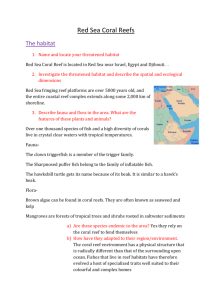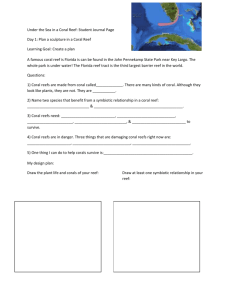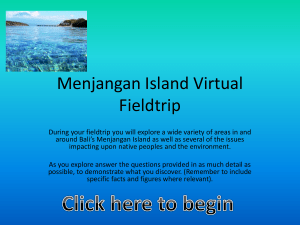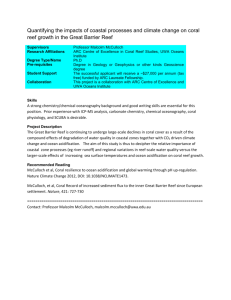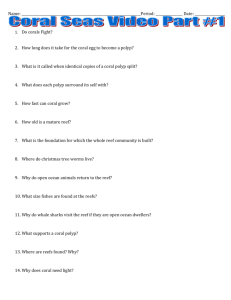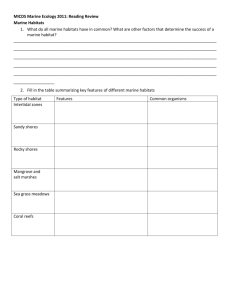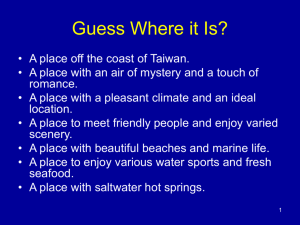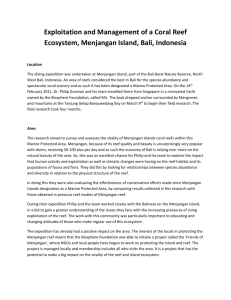Name November 5, 2009 Foundations in Science After listening to a
advertisement
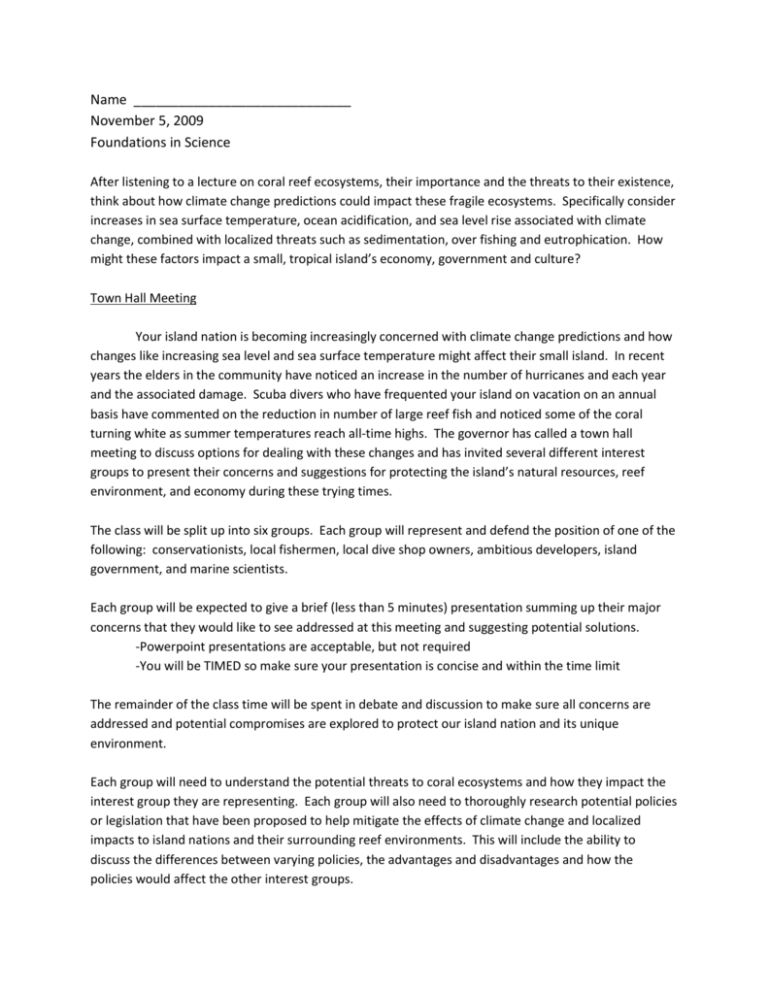
Name _____________________________ November 5, 2009 Foundations in Science After listening to a lecture on coral reef ecosystems, their importance and the threats to their existence, think about how climate change predictions could impact these fragile ecosystems. Specifically consider increases in sea surface temperature, ocean acidification, and sea level rise associated with climate change, combined with localized threats such as sedimentation, over fishing and eutrophication. How might these factors impact a small, tropical island’s economy, government and culture? Town Hall Meeting Your island nation is becoming increasingly concerned with climate change predictions and how changes like increasing sea level and sea surface temperature might affect their small island. In recent years the elders in the community have noticed an increase in the number of hurricanes and each year and the associated damage. Scuba divers who have frequented your island on vacation on an annual basis have commented on the reduction in number of large reef fish and noticed some of the coral turning white as summer temperatures reach all-time highs. The governor has called a town hall meeting to discuss options for dealing with these changes and has invited several different interest groups to present their concerns and suggestions for protecting the island’s natural resources, reef environment, and economy during these trying times. The class will be split up into six groups. Each group will represent and defend the position of one of the following: conservationists, local fishermen, local dive shop owners, ambitious developers, island government, and marine scientists. Each group will be expected to give a brief (less than 5 minutes) presentation summing up their major concerns that they would like to see addressed at this meeting and suggesting potential solutions. -Powerpoint presentations are acceptable, but not required -You will be TIMED so make sure your presentation is concise and within the time limit The remainder of the class time will be spent in debate and discussion to make sure all concerns are addressed and potential compromises are explored to protect our island nation and its unique environment. Each group will need to understand the potential threats to coral ecosystems and how they impact the interest group they are representing. Each group will also need to thoroughly research potential policies or legislation that have been proposed to help mitigate the effects of climate change and localized impacts to island nations and their surrounding reef environments. This will include the ability to discuss the differences between varying policies, the advantages and disadvantages and how the policies would affect the other interest groups. Questions to think about: How does your group benefit from a healthy reef environment? What are some ways the coral might be damaged? How might you prevent this sort of damage? How might your group be impacted if the reef became degraded? What is a Marine Protected Area (MPA)? What are the advantages and/or disadvantages to limiting fishing, development, and/or scuba diving on the island? Some good resources: http://www.epa.gov/OWOW/oceans/coral/#solutions http://oceanservice.noaa.gov/education/kits/corals/coral11_protecting.html http://www.panda.org/what_we_do/how_we_work/conservation/marine/protected_areas/increasing_ protection/corals_mangroves/ http://coralreef.noaa.gov/
